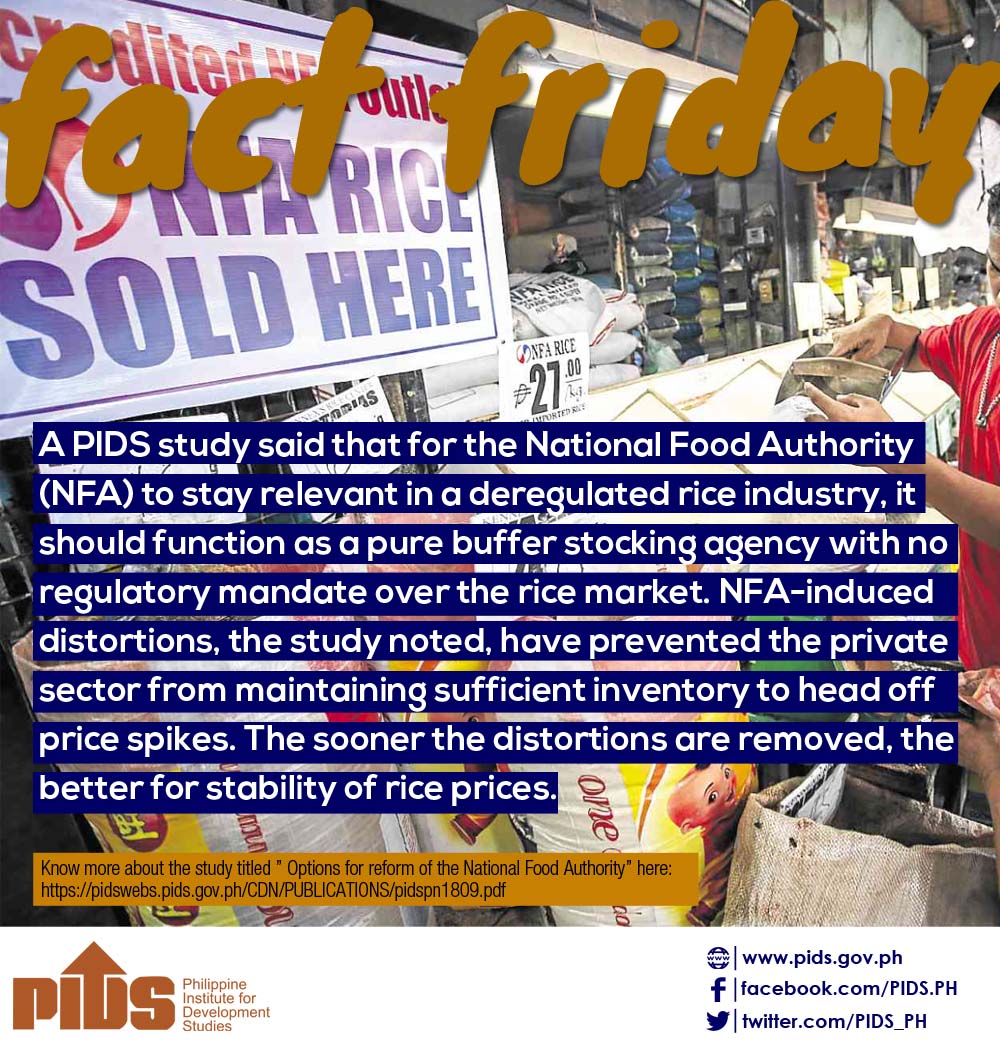THE passage of the rice tariffication bill at the Bicameral Conference Committee will also benefit other agricultural crops, according to a local economist.
Ateneo EagleWatch Senior Fellow Leonardo A. Lanzona Jr. told the BusinessMirror that the tariffication can boost reforms in other crops given that it will lessen the rice-centric approach of the government in agriculture. Local economists have pointed out that the government’s focus on rice has stolen time and resources away from developing other crops where the country could have a comparative advantage.
“The impact of this law goes beyond the lowered rice price which the lawmakers intended. Its impact is to rationalize the agricultural sector which has focused on rice sufficiency. With this law, other crops where we have comparative advantage can now be considered for reform,” Lanzona said.
Lanzona said the impact on rice prices may not even be felt given that inflation has been managed. But what is more important is that more resources can be given to other activities in the farm sector.
“Even the prices will not be affected in the short run since inflation has now been managed. But government resources can now be placed more effectively over the long term, bringing in greater productivity in the sector,” Lanzona said.
Meanwhile, the National Economic and Development Authority (Neda) estimates that headline inflation would go down by a percentage point if rice prices are reduced to the level of imported rice.
Even with just a P1 per kilo reduction in the wholesale price of rice, Socioeconomic Planning Secretary Ernesto M. Pernia said headline inflation rate would also be reduced by 0.3 percentage points. The Neda said rice tariffication also helps improve the productivity of farmers and, as a result, boosts their incomes.
The bill provides for the establishment of a Rice Competitiveness Enhancement Fund from an annual appropriation of P10 billion for the next six years. If the tariff revenues exceed P10 billion in any given year, the excess revenue will still be plowed back to RCEF to support rice farmers.
“We view this as a positive development as the administration’s economic team exhausts all efforts to tame increases in the prices of goods. With only the President’s signature before rice tariffication becomes a law, we are making a big step in the realization of our agricultural reform agenda,” Pernia said.
In 2014 PIDS Senior Research Fellow Roehlano M. Briones and Research Analyst II Danileen Kristel C. Parel said the country’s rice self-sufficient policy is obsolete.
They said it cost taxpayers debts worth P156 billion as of 2009, courtesy of the National Food Authority, whose “buy high, sell low” policy is draining government coffers.











